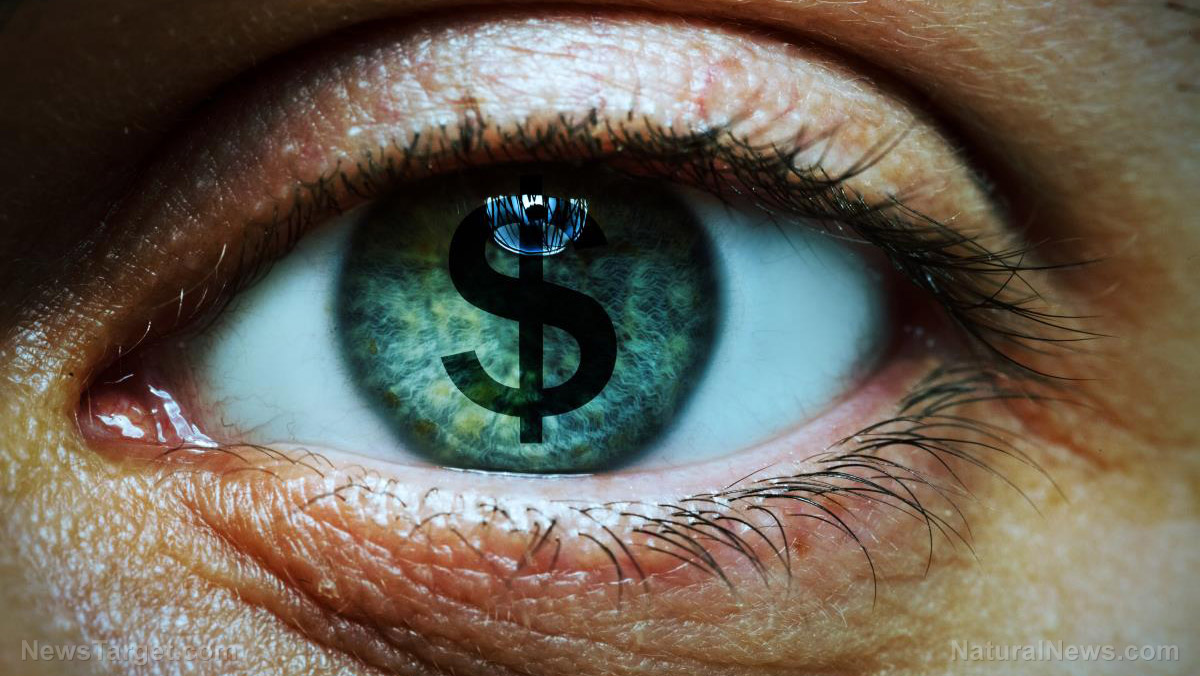Banking system showing more signs of COLLAPSE as customers report widespread deposit delays
11/10/2023 / By Ethan Huff

The private Federal Reserve banking and usury cartel is urging America’s banks to at least try to help customers across the country who are increasingly reporting problems with depositing their paychecks and other funds.
In yet another display of America’s cracking financial system – when will the thing finally die already? – customers who use direct deposit to transfer their earnings from their employers to themselves say the funds are not posting, which the establishment is blaming on “human error.”
We are told that the Automated Clearing House (ACH) payments system is experiencing “problems” that are causing major headaches for not just consumers but also their employers.
“The Federal Reserve encourages banks to work quickly to resolve issues for customers experiencing delays in receiving direct deposit payments as a result of operational issues at a private sector payments provider,” announced a spokesperson from the Fed.
(Related: How can this all be happening when fake president Joe Biden told Americans back in March that “the banking system is safe?”)
America’s banks promise that customer funds are “secure”
One thing the Fed is signaling to the usury masters is that they need to at least waive all overdraft and late fees associated with these issues, which JPMorgan Chase has said it will do.
The Consumer Financial Protection Bureau likewise indicated that consumers “should not be penalized” with fees or whatever else for issues that stem from America’s highly corrupt financial system, which is more of a Ponzi scheme for the rich than anything else.
“The Federal Reserve’s payments services are separate and functioned normally,” claimed a Fed spokesperson in a follow-up statement.
According to the nation’s banks, all customer funds are “secure,” even if the system is showing signs of imploding in on itself at any moment.
As for payments that were sent but did not go through last week, banks are now telling customers that everything is just fine because the process “can take time.”
The Clearing House, a private group that operates the ACH, claims it is working both with banks and the Fed to “resolve this issue as quickly as possible,” though it would not share anything further with the media.
According to a spokesman from the private Clearing House, all of this began as a “processing error” when some ACH payment instructions were sent to financial institutions with account numbers and customer names “masked.”
“That missing data meant that some ACH payments were delayed,” reported one media source about the matter.
Less than one percent of the daily ACH volume in the United States was affected by this problem, according to the Clearing House.
In the month of September, the ACH Network processed an average of $330 billion per day, according to Nacha, a nonprofit organization that governs the network.
Among the banks where customers reported ACH problems are most of the usual suspects: Bank of America, Chase, Wells Fargo, U.S. Bank and Truist.
The latest reports suggest that hundreds of thousands of payments have been delayed because of this “processing error.”
“In many cases,” the Clearing House admitted, these transfers will continue to be delayed.
In some states, these delays are actually illegal, such as in Texas where one person reported the matter to Attorney General Ken Paxton, noting that Bank of America, in his case, “is non-compliant with regulations and it’s impacting Texas customers.”
“Some deposits from 11/3 may be temporarily delayed due to an issue impacting multiple financial institutions,” reads a prompt from BofA about the deposit delays at that bank.
“Your accounts remain secure, and your balance will be updated as soon as the deposit is received. You do not need to take any action.”
Fiat “money” is an illusion. Learn more at Collapse.news.
Sources for this article include:
Submit a correction >>
Tagged Under:
ACH, banking, banks, Bubble, chaos, Collapse, computing, conspiracy, corruption, cyber war, debt collapse, deception, economic riot, finance riot, Glitch, information technology, money supply, outrage, panic, pensions, risk
This article may contain statements that reflect the opinion of the author
RECENT NEWS & ARTICLES
COPYRIGHT © 2017 RISK NEWS





















